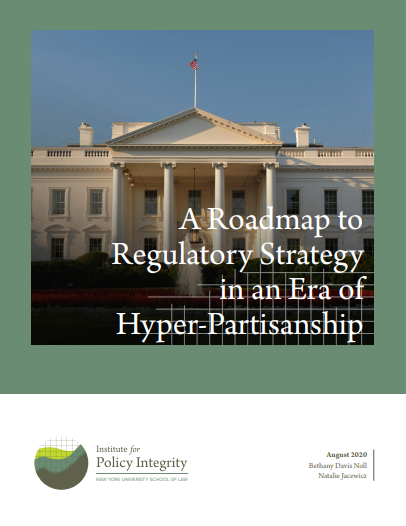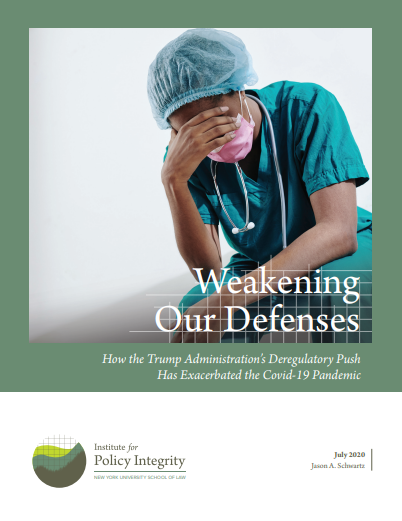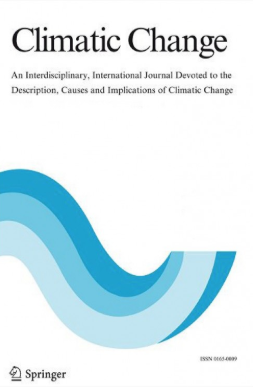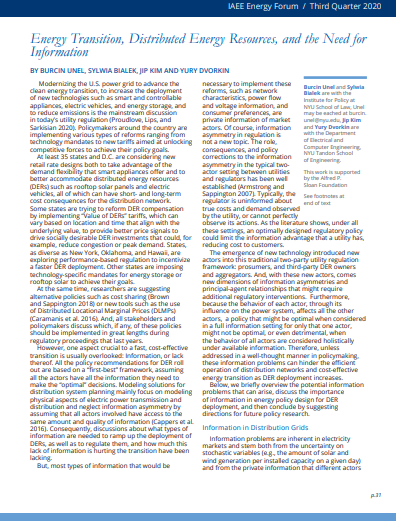The Institute for Policy Integrity produces a variety of publications. Our research reports develop in-depth research on our core issues, while our policy briefs and issue briefs provide focused analysis on more timely or particular topics. Our academic articles and working papers offer original scholarly research and analysis from established experts as well as fresh new voices.
Latest Publications
-
A Roadmap to Regulatory Strategy in an Era of Hyper-Partisanship
This report discusses how an administration that begins a new term can navigate regulatory strategy. It offers advice on navigating this terrain for White House officials, the Office of Information and Regulatory Affairs, transition teams at agencies, and advocates. The report also contains a section on how an incoming administration can roll back the prior administration’s rules if there is an inter-party transition.
-

Markets, Externalities, and the Federal Power Act: The Federal Energy Regulatory Commission’s Authority to Price Carbon Emissions
Article revised for the Environmental Law Reporter
This article, excerpted from Davis Noll and Unel’s article in the NYU Environmental Law Journal, provides a comprehensive economic framework to show that addressing the CO2 externality through a carbon price falls within FERC’s authority to ensure an efficient market.
-
Weakening Our Defenses
How the Trump Administration’s Deregulatory Push Has Exacerbated the Covid-19 Pandemic
The failure of the federal government to adequately safeguard the health, environment, and economy of the United States with efficient regulatory protections is not a new phenomenon. For over three years now, the Trump administration has systematically delayed, undermined, and erased key regulations that protect our health, our environment, our workplaces, our living conditions, and our economy. The steady erosion of regulatory safeguards has severely compromised our baseline defenses against Covid-19.
-
Wisdom of the Experts
Using Survey Responses to Address Positive and Normative Uncertainties in Climate-Economic Models
The social cost of carbon (SCC) and the climate-economic models underlying this prominent US climate policy instrument are heavily affected by modeler opinion and therefore may not reflect the views of most climate economists. To test whether differences exist, we recalibrate key uncertain model parameters using formal expert elicitation: a multi-question online survey of individuals who have published scholarship on the economics of climate change. Read the article, published in Climatic Change.
-
Energy Transition, Distributed Energy Resources, and the Need for Information
Modernizing the U.S. power grid to advance the clean energy transition, to increase the deployment of new technologies such as smart and controllable appliances, electric vehicles, and energy storage, and to reduce emissions is the mainstream discussion in today’s utility regulation. Policymakers around the country are implementing various types of reforms ranging from technology mandates to new tariffs aimed at unlocking competitive forces to achieve their policy goals. We briefly overview the potential information problems that can arise, discuss the importance of information in energy policy design for DER deployment, and then conclude by suggesting directions for future policy research.




